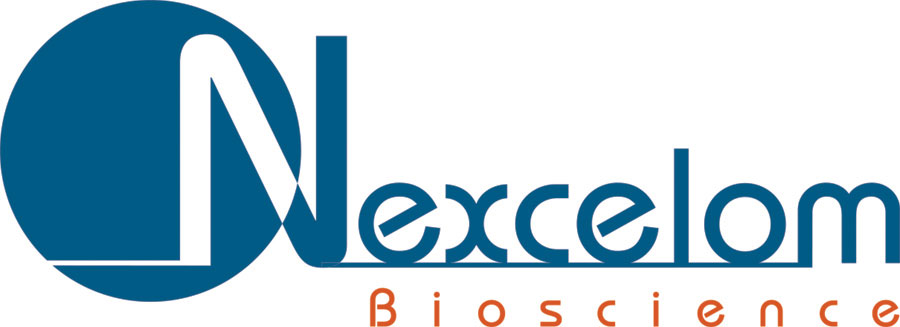Sponsored content brought to you by

Senior Business Development Manager
Nexcelom Bioscience is a biotechnology company composed of biological scientists, software developers, and mechanical engineers who are dedicated to advancing the field of biomedical research. It is a company founded on the principle of “Better Tools for Better Biology”, and applies this mindset toward product and applications development to drive scientific progress. In recent years, Nexcelom developed a suite of applications and instrumentation that enabled development and analysis of advanced in vitro models that are increasingly utilized in oncology and immuno-oncology drug discovery and development. These platforms greatly increase throughput and output of many cell-based assays that are key to characterize therapeutic target efficiency and safety.
What have been the biggest successes in your field over the past few years?
Our biggest success has been establishing ourselves as an integral player in the field of immuno-oncology research. Immunotherapy has emerged as one of the most promising and cutting-edge strategies to target and treat cancers, from both hematologic to solid tumor malignancies. Immunotherapy encompasses a broad array of treatment options that utilize the patient’s own immune system to interrupt and inhibit cancer progression. The two most promising candidates are CAR T cell-based therapies and checkpoint inhibitor-based therapies. More recently, other novel treatments such as bispecific antibody therapies and cancer vaccines are also emerging as formidable candidates in the ongoing fight against cancer. As this research and development field has evolved, quite rapidly over the recent years, scientists are facing new cell analysis challenges. Developing cell therapy products targeting solid tumors requires physiologically relevant in vitro models that provide cell-matrix and cell-cell interactions. High throughput assays are needed to screen many therapeutic candidates and investigate possible combinatorial treatment strategies. Researchers are also looking into other cell fitness assays beyond viability to better characterize cell therapy products. Nexcelom Bioscience has been fortunate to be at the leading edge, offering novel technologies, assays, and research expertise that contribute to the success of immunotherapy development.
What products/services do you offer to support the industry?
Nexcelom Bioscience offers a comprehensive array of image-based cell analysis instrumentation that offer many unique advantages to the immunotherapy field, from basic sciences research all the way to therapeutic product development and manufacturing. Our Cellometer® and Cellaca™ MX cell counting and analysis systems enable the rapid and accurate quantification of primary patient samples and immunotherapy products, as well as tumor samples for in vitro assay set up and screening. These patient-derived therapies require critically accurate cell counts due to the complexity and heterogeneity of the source of cell samples. Our Celigo® high throughput plate-based imaging system is a robust platform that can be utilized for monitoring immune cell expansion and product health and viability, but also for potency assays and in vitro characterization of immunotherapy products. Celigo® can be utilized to monitor the efficacy of targeted cancer cell killing in a variety of complex assay formats. Moreover, Celigo® assay technology can be implemented to characterize and screen a vast array of immunotherapy targets—from T cell therapies, to bispecific antibody therapies, to tumor agnostic therapies—the whole gamut of therapeutics that are being actively researched and developed. Taken together, the entire family of product offerings from Nexcelom can be used in key steps throughout the immuno-oncology research and development pipeline, from assay development to screening therapeutic target quality and efficiency.
What’s your vision for the future of the field over the next 5–10 years?
One of the biggest challenges in immunotherapy research is maintaining a balance between the efficiency of the therapy itself and the tempering of the immune response during patient treatment to limit immune-mediated side effects. This challenge is particularly widespread in the development of immunotherapies for treatment of solid tumors. The initial successes in immunotherapy have been targeted toward hematologic malignancies, such as lymphomas and leukemias, where infusion of an immune therapy can be performed intravenously. Solid tumors pose a more significant challenge, both in development of effective therapies, but also maintaining the balance of efficacy and proper targeting of the therapy to the solid tumor, and limiting immune-mediated side effects. We expect immunotherapy research and development of novel therapies to continue to advance rapidly over the next 5–10 years, with the addition of many new and effective treatment options for different solid tumor malignancies, particularly those that have generally poor prognoses or are refractory to current treatment options.
What are your most exciting products, services, or initiatives in development?
Our expertise in immuno-oncology and immunotherapy in addition to the numerous collaborative projects we are currently working on provides us with a great opportunity to revolutionize the complexity and throughput of cancer research and development. One of the most exciting newly launched products this year was the Cellaca™ platform at the AACR conference, a high throughput cell viability and counting system that can assess 24 samples in 2 ½ minutes. It will truly transform how scientists are able to conduct cell counting and viability analyses for all sample types. The Cellaca™ system combined with the robust high throughput screening platform of the Celigo® ensures that we have a versatile toolkit to contribute to advancement of the field. By coupling our instrumentation with the expertise and assay development services our team of scientists contribute Nexcelom is poised to continue to be an invaluable player in the development of novel cancer therapies. We are also putting heavy emphasis into new software features for the Cellometer®, Cellaca™, and Celigo® platforms in order to advance the throughput and robustness of data for many of these emerging cancer research models. Our reagent development team is continually working on new and innovative cell assay reagents and no-wash protocols to increase the flexibility and versatility of the assays that can be conducted. One of the overarching initiatives is to enable “better biology”; as such, many of the developments within Nexcelom are geared toward achieving this goal, both internally within our own products, but also as we work with our customers and researchers on a day to day basis. We are very excited to see where scientific progress takes us!
For more information: www.nexcelom.com.


